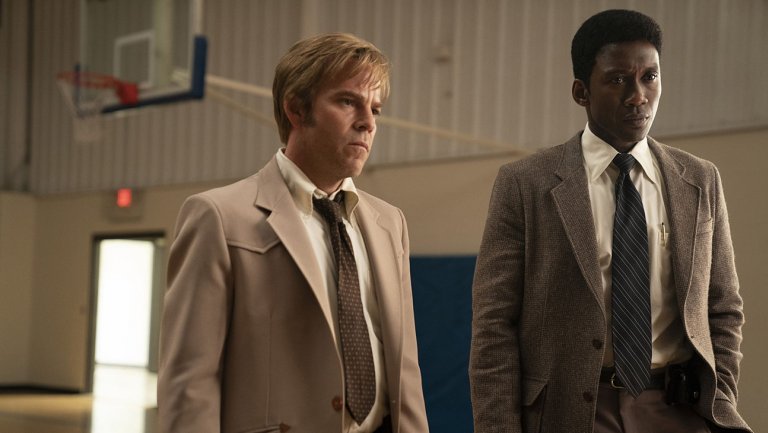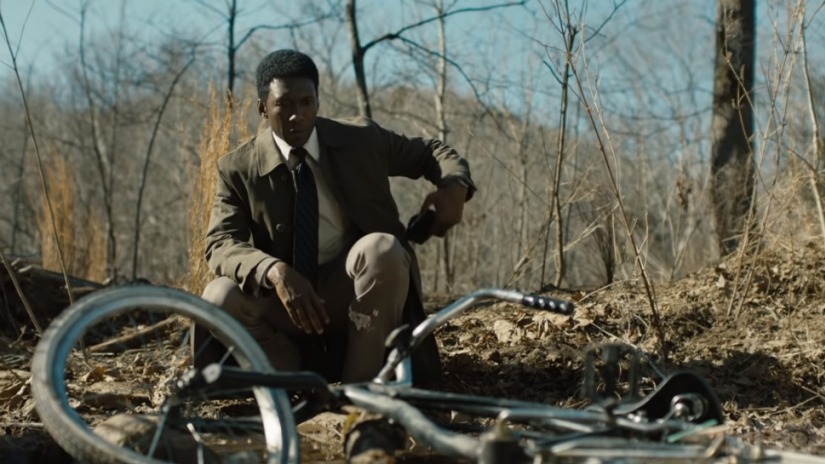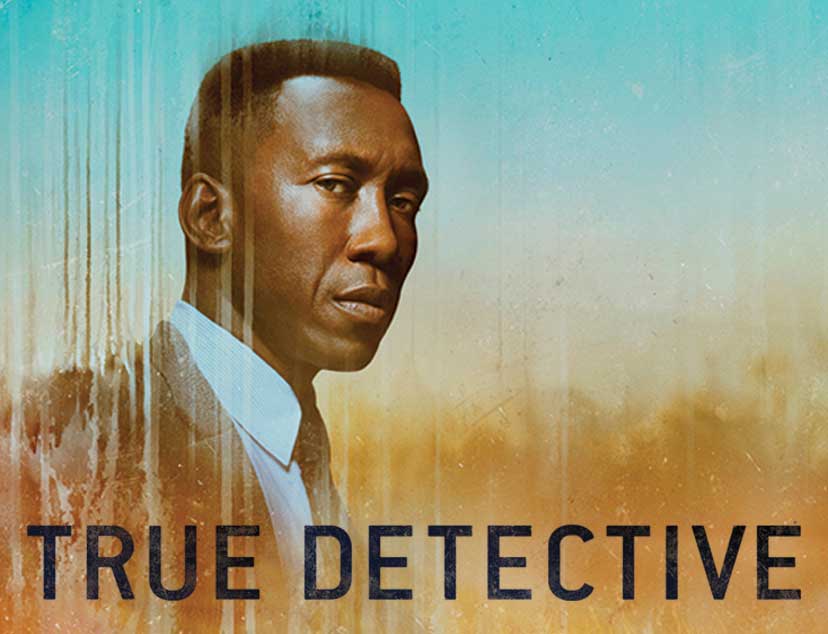
Nic Pizzolatto‘s Southern Gothic police procedural has returned for its third season, this time headlined by Mahershala Ali, and with a storyline that eschews the over-philosophizing and morose platitudes that bogged down the sophomore season (about which I wrote on this fair site as well). Here, the return to basics approach applies as much to Pizzolatto’s story, as much as it does to the structure and plot itself. Bouncing between three separate time periods, and returning to the Southern Gothic vibe that made the first season such a surreal delight that permeated the cultural zeitgeist. While this season doesn’t seem like it’ll quite reach those same heights, it is a marked improvement, and seems to make up for the narrative deficiencies of the second season.
Ali stars as Wayne Hays, who, in 1980, is partnered with Roland West (Stephen Dorff) to solve the case of two missing children from a small town in the middle of the Ozarks. What would otherwise be a quiet town is soon thrown into tragedy, and further into a bizarre mystery as hints are scattered that Hays and West might be stumbling into something at least as harrowing and cryptic as the Yellow King, and Carcosa. Jumping forward ten years, Hays is asked to revisit the bizarre case, as one of the two missing children had reappeared; and in 2015, a broken, widowed, on-the-verge-of-dementia Hays is interviewed about this same case, the subject of a true crime documentary (a clever meta commentary about the near obsessive appeal of true crime cases on streaming services).
Directed by Jeremy Saulnier (who mastered tension-building in the excellent Green Room), the first two episodes are a slow burn that makes excellent use of the beautiful Arkansas Ozark range, as well as the forgotten towns therein. Whereas season one made great use of the encroaching factories along the Delta, and season two dove deep into the seedy Los Angeles developmental environs and opulent mansions, season three is wallowing in the thick Southern heat and getting atmospheric as hell.

Ali does excellent work, as he tends to do, and while Scoot McNairy (as the broken father of the two missing children) and Stephen Dorff do commendable work, they seem oddly miscast (if they had switched roles, they might have fared better. McNairy and Ali’s interactions have much more energy than Ali and Dorff…and THEY’RE supposed to be the veteran partners). Ali has a wiry, calculating look to him to begin with, and has no problem translating that to the introspective Hays (who, we are told, was a LRRP in Vietnam). Dorff plays West as an unwilling companion moreso than trusted partner, with a dark vibe that seems, oddly, one-dimensional; gone is the complexity of Woody Harrelson‘s Marty, or the jaded cynicism of Matthew McConaughey‘s Rust. Already, Dorff’s West seems to be as fully formed as we’re going to get, which would be a damn shame, because casting or pacing aside, if there’s one thing True Detective has done well, it’s creating compelling, complex characters.
Themes of memory and machismo come into play once again (when we first meet Hays and West together, they’re drunkenly shooting at rats when they’re supposed to be on patrol), and the intrusion of Hays’ developing dementia is generating an air of continued loss to the 2015-set sequences. Compunding Hays’ oncoming memory loss is the loss of his own independence, as, in 2015, his son (played by Ray Fisher) oversees the documentary interview, seeking to protect his father from painful or difficult memories. Not only is can Hays not remember his own past, but he cannot, it seem, even be allowed to re-experience it, out of a need to be protected.

And, of course, we get to the central mystery, of which we’re only given the briefest hint that it’ll dip into the macabre. Hays, using the LRRP skills he’d honed in Nam, spends a day tracking the barest clues out and around the Ozarks, and finds one of the missing children (the young brother), dead in a cave, posed with his hands clasped, and with a hand-made doll set close nearby his body. While it’s nothing as shocking or unnerving as the Yellow King’s sacrificed women, it’s still an unnerving image.
Will this season reach the glorious highs of the first season? It is very doubtful, but already we’re on track for some great introspection on the male condition, and a treatise on the merits and limits of memory. Wrap that around an occult, Southern Gothic mystery, and some terrific acting by one of the best leading men working today, and we’re off to a solid start. If the rest of the supporting cast and rise to meet the level of Ali, and the mystery at the heart of this season be used for some subtext as well, then we can probably wash out the taste of the (mostly….but not entirely) forgettable and regrettable second season. 4/5 Bibles.
-J.L. Caraballo

